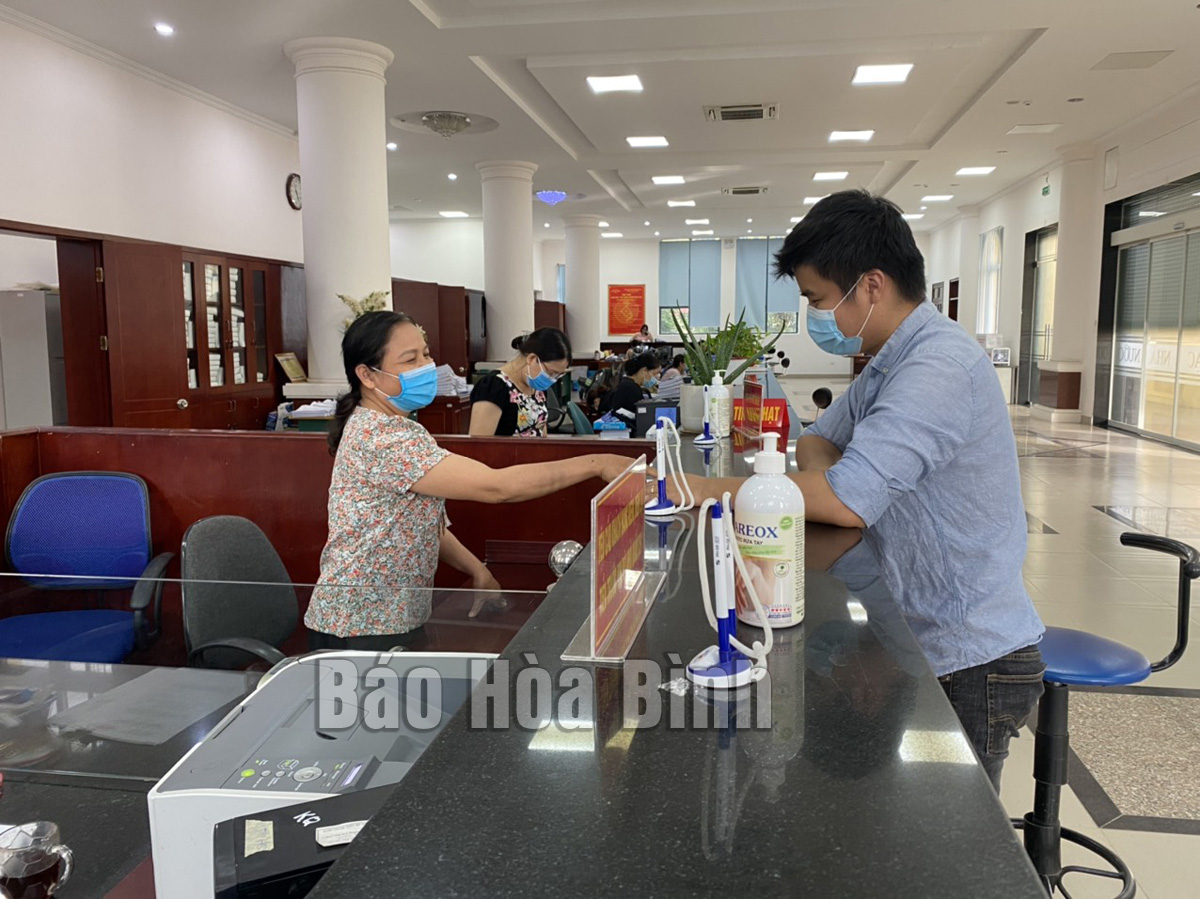
(HBO) - In order to strengthen discipline and raise responsibility of heads of units in performing public duties, the provincial State Treasury has stepped up administrative reform, thus reducing time and costs.

The provincial State Treasury’s one-stop shop unit creates favourable conditions for clients
Setting administrative reform as a key task to improve service quality, Director of the provincial State Treasury Le Hoai Thanh said the agency has been accelerating institutional and administrative reform along with taking synchronous measures such as intensifying inspection of the processing of administrative procedures, publicising administrative processes, documents and in-charge units, and arranging qualified staff to create favourable conditions for clients.
The provincial State Treasury regularly devised plans to oversee administrative procedures, making it one of the major tasks.
It also made a list of administrative procedures in need of amendment, supplementation, replacement and removal.
The provincial State Treasury has raised awareness of the benefits of online public services among units using the State budget. So far, 100 percent of the agency’s 1,323 clients have used online public services, while 16,906 out of 17,561 invoices have been sent via public services, equivalent to 96.27 percent.
The provincial State Treasury continues to apply information technology in the handling of administrative procedures in State budget collection and spending, step up online payment of taxes, fees and fines, connect and share data with the national public service portal, and modernise management technology and increase support utilities for users.
With continuous efforts to effectively improve administrative procedures, the provincial State Treasury is gradually bringing administrative reform closer to the people. It is one of the important measurements to soon build an "electronic treasury”, contributing to the province’s development./.
In the spirit of "Party members go first, the people follow”, all households of Party members in the Doan Ket sub-region in Da Bac town, Da Bac district, voluntarily removed gates and fences, and donated land when the road expansion project passed through their properties. Inspired by their example, 68 households in the sub-region quickly followed suit, contributing over 1,400 sq.m of residential and perennial cropland to widen the main road through the residential area. The exemplary role of Party members in Doan Ket stands as a shining example of studying and following President Ho Chi Minh’s thought, morality, and lifestyle.
The Hoa Binh provincial People's Committee held a monthly meeting on May 29 to assess the implementation of socio-economic development tasks in the first six months of 2025, the progress of key projects, and some other important issues.
During his lifetime, President Ho Chi Minh always expressed his deep affection and special concern for children and youth. He once emphasized: "Caring for and educating children well is the responsibility of the entire Party and the entire people”; "First of all, the family (i.e. grandparents, parents, siblings) must do this job well”. "the Party Committees…, the Children’s Committee, the Youth Union, the education sector, and all related organizations must have specific plans to ensure children grow healthier and more progressive”. His teachings has been remaining valuable and serving as the guiding principles in the work of protecting, caring for, and educating children. In line with this ideology, Hoa Binh Province has continuously been prioritizing and investing resources in the well-being of children in recent years.
Mr. Nguyen Phi Long, the alternate Member of the Party Central Committee and Secretary of the Provincial Party Committee chaired the meeting of the Standing Committee of the Provincial Party Committee to provide opinions on several investment projects within the province. There was the attendance of Ms. Bui Thi Minh, the Permanent Deputy Secretary of the Provincial Party Committee and Chairwoman of the Provincial People’s Council; Mr. Bui Đuc Hinh, the Deputy Secretary of the Provincial Party Committee and Chairman of the Provincial People’s Committee and other members of the Standing Committee; the leaders from other departments, agencies, and some localities.
The Standing Board of the Vietnam Fatherland Front (VFF) Committee of Hoa Binh province held a meeting on May 28 to honour outstanding village elders, village heads, and reputable individuals from local ethnic minority and religious communities.
In mid-May, the provincial Museum organised an exhibition named "Duoi la co Dang Cong san Viet Nam quang vinh” (Under the flag of the glorious Communist Party of Vietnam). This meaningful activity took place in the joyful atmosphere to celebrate the country's major holidays and the Party congresses at all levels for the 2025-2030 term, towards the 14th National Party Congress.



